As our world changes, CIPE is creating new opportunities and helping to improve the lives of millions of people. Private sector leadership and a commitment to democratic principles are what make CIPE programs so unique and impactful, because in most countries and communities, small and medium sized businesses are the economic engine. From Peru to Papua New Guinea, CIPE is known as a global leader for advancing the voice of business in policy making, impactful anti-corruption work, women’s economic empowerment initiatives, and other innovative programs that drive change. This timeline highlights milestones and key moments for CIPE since its founding in 1983.

U.S. President Ronald Reagan challenges the free world to “foster the infrastructure of democracy” during his famous “Westminster Speech” to British Parliament. This spurs U.S. bi-partisan efforts to create a National Endowment for Democracy and core institutes, including one with a mission to support economic freedoms through private sector involvement.
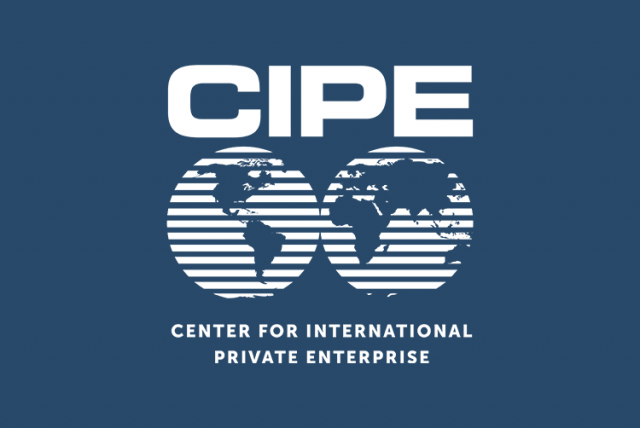
The Center for International Private Enterprise is established as an affiliate of the U.S. Chamber of Commerce, with the aim of supporting democratic and economic development abroad through programs with private sector partners, notably chambers of commerce and business associations, as well as think tanks and journalists.
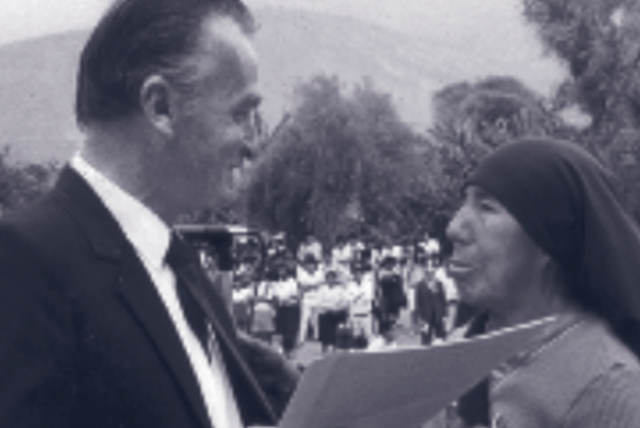
CIPE works with Hernando de Soto’s Institute for Liberty and Democracy (ILD) in Peru to create an economic reform agenda and advocacy campaign. The project helps integrate 300,000 small businesses into Peru’s formal economy and ILD becomes a globally recognized think tank for its work with the informal sector, property rights issues, and democracy. CIPE soon launches dozens of programs with local business organizations in emerging markets and new democracies, including Chile, Guatemala, and the Philippines.
- CIPE launches its first business association management training programs and creates the Latin American Institute for Organization Management, offering various forms of professional development and leadership training in 18 countries. Soon CIPE becomes a globally recognized leader in business association management training and association capacity building, with innovative tools and a tailored training curriculum.
- The Center for Economic Orientation, a Dominican think tank, starts a program for providing reports to lawmakers in order to strengthen their ability to make informed decisions on economic policy. It is the first of many CIPE legislative advisory programs in Latin America and the Caribbean. Similar programs are soon established in Ghana and other countries.
Work to address typical barriers to entering the formal economy continues. More than 250 business, government, and academic leaders from 35 countries attend the first international conference on the informal sector, which is co-sponsored with the U.S. Agency for International Development
CIPE is among the first organizations of its kind to encourage the use of global teleconferences among partners and sponsors a three-part series on trends in economics and democracy with audiences in Argentina, Chine, Peru, and Venezuela.

The Berlin Wall falls and CIPE begins work with its first partners in former Communist nations across Eastern and Central Europe. Early efforts include programs in Czechoslovakia after its “Velvet Revolution,” trainings for hundreds of new entrepreneurs in Poland, and work in Romania that informs new measures to enable business. These and other activities aid the development of regional guides and resources as private enterprise becomes legal.
Image Credit: GERARD MALIE/AFP via Getty Images

CIPE debuts Economic Reform Today, a quarterly magazine to assist private and public sector decision-makers and opinion leaders. The magazine is translated and distributed in more than 90 countries, and later takes on a digital format, inspiring many more print and online offerings.
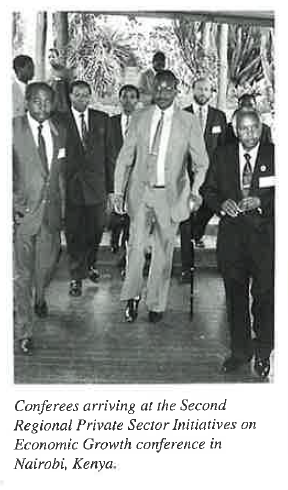
Seven African countries send representatives to a series of public private dialogues and conferences supported by CIPE: Botswana, Kenya, Mauritius, Mozambique, Namibia, Tanzania, and Zimbabwe. And every country implements some economic reforms as a result.
Conferees arriving at the Second Regional Private Sector Initiatives on Economic Growth conference in Nairobi, Kenya.
A privatization conference in Ankara, Turkey is the first of many CIPE-supported programs in the Middle East.
Budapest, Hungary is the location of CIPE’s first field office. Staff there support a legal and regulatory reform project and facilitate the development of small businesses and support networks, as well as an economic roadmap utilized by decision-makers. The program receives funding from the United States Agency for International Development and helps create a process for public input that is ultimately reflected in Hungary’s framework for public input to lawmakers.
Adapting an advocacy methodology of the U.S. Chamber of Commerce, CIPE introduces the National Business Agenda (NBA) process to the National Confederation of Private Business Institutions (CONFIEP) in Peru. The NBA approach becomes a key component of CIPE programs for articulating private sector priorities toward improving the business climate, both country-wide and locally.
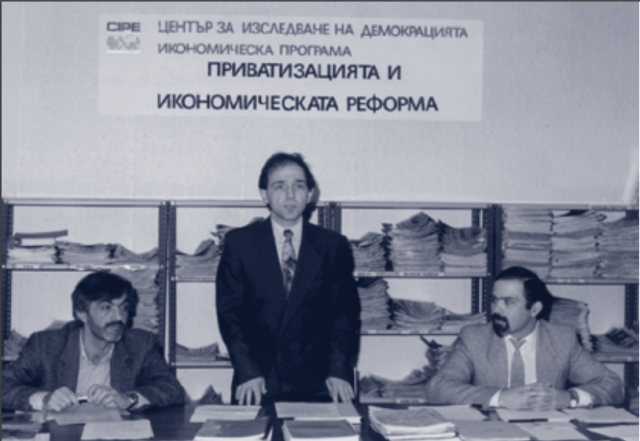
As the role of civil society becomes increasingly vital to economic and democratic development efforts across Central and Eastern Europe, CIPE continues to work with emerging leaders, advocacy groups, and researchers. Many of the organizations will become leading think tanks in the region.
- Egypt: CIPE opens a regional office in Cairo and partners with the Federation of Egyptian Industries to support the country’s new commitment to private sector development and economic reform.
- Russia: Work with the national Chamber of Commerce leads CIPE to open a Moscow office for a time and launch many programs.
- Ukraine: Program focus on leadership development, institutional development, access to information, and reducing corruption.
- China: Economists and academics launch an economic information portal with support from CIPE.
- Vietnam: The Press Foundation of Asia pushes for freedom of information, similar efforts follow in many countries.
The newly launched cipe.org website, including its “Forum on Economic Freedom” section, becomes a reliable source for economic and democratic development news and guides. The site receives an award from the Financial Times of London, earning the title “Business Website of the Year.”
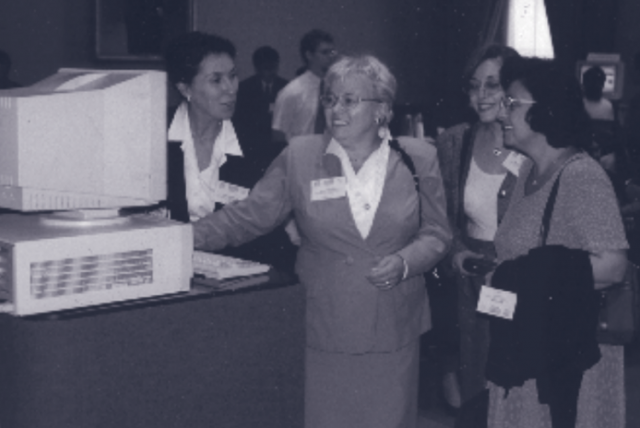
CIPE is recognized by the Financial Times with an award for the Non-Profit Business Web Site of the Year for its content to serve “the specific needs of a closely targeted, but geographically disparate, user community.”
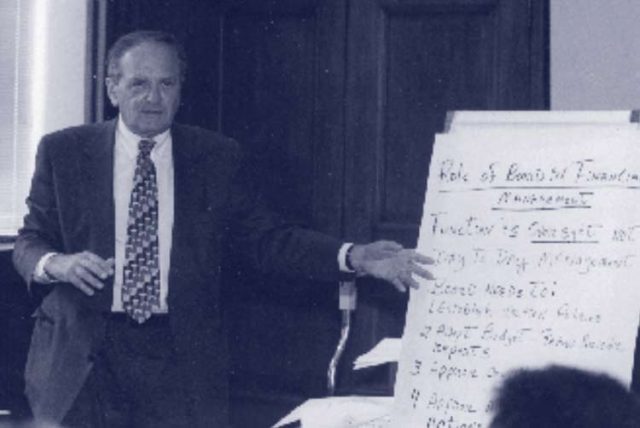
CIPE increases its focus on the role of corporate governance in strengthening democracy, establishing programs and trainings in numerous countries to help companies build effective and transparent boards. CIPE also participates in the establishment of corporate governance principles by the Organisation for Economic Co-operation and Development that eventually become international benchmarks. The work coincides with financial crises in Russia and Asia attributed to corrupt government-business relationships and other issues, such as shifts away from state-owned enterprises.
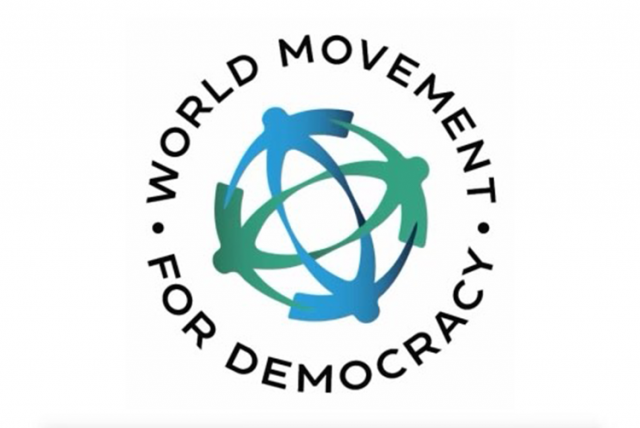
CIPE participates in the first World Movement for Democracy conference in New Delhi, India and sponsors the first-ever skill-building workshop for Arab journalists in Egypt.
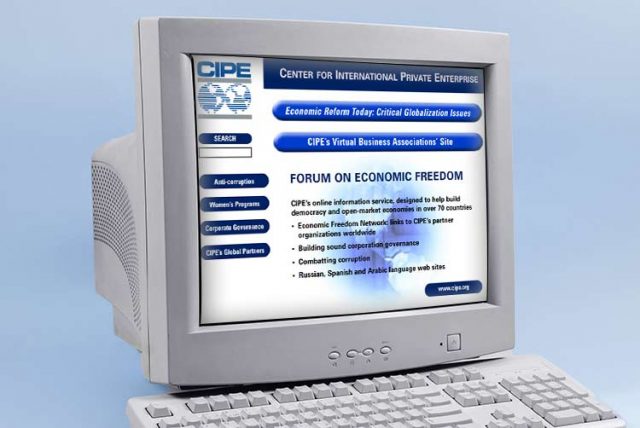
CIPE takes steps to reach new audiences and make resources more readily available with the launch of a Virtual Business Association website, which receives an award from the American Society of Association Executives. A new Arabic language website is designed to support CIPE’s growing network in the Middle East and North Africa.
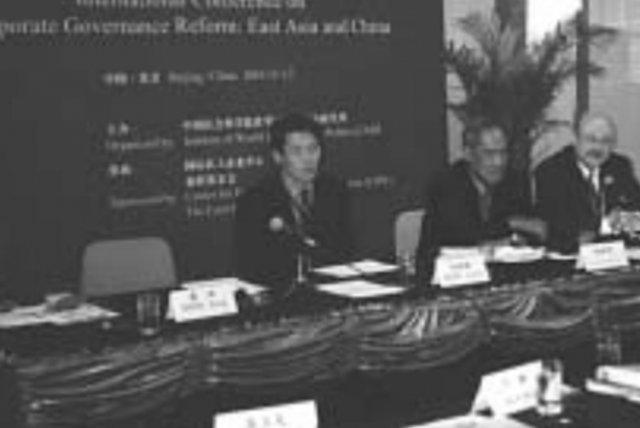
CIPE takes a leadership role in global pushes against corruption, co-sponsoring an Anti-Corruption Conference with Transparency International and others in Prague, Czech Republic. The following year CIPE, the Carnegie Endowment for International Peace, and local partners hold the first-ever private sector conference in China, with a focus on combating corruption.
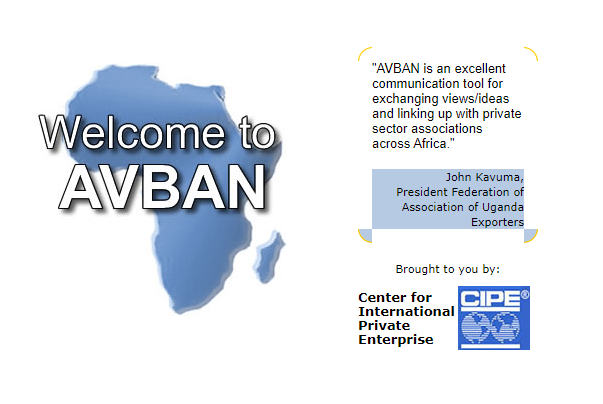
CIPE launches the Africa Virtual Business Association Network (AVBAN) website, which allows the organizations to exchange information, ideas, and best practices in new ways. CIPE and the Dhaka Chamber of Commerce and Industry in Bangladesh publish the first Women Entrepreneurs Directory to raise the profile of women-owned firms in the marketplace.
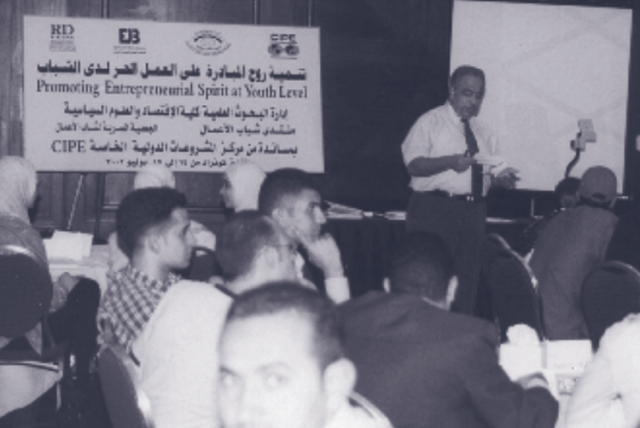
CIPE grows its efforts to amplify the voice of young people and emerging leaders in decision-making, as well as encourage future business leaders. This includes programs in Peru, Afghanistan, and Egypt.
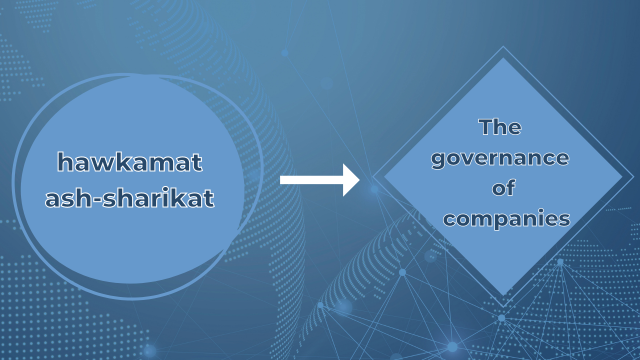
- The Academy of the Arabic Language approves the creation of a new word to describe corporate governance: hawkamat ash-sharikat translates to “the governance of companies.” This is part of efforts by CIPE, the Egyptian Capital Market Association, and the Ministry of Foreign Trade to encourage a regional culture that embraces good corporate governance concepts.
- CIPE organizes a business association development workshop with Chinese industry associations in Shanghai, the first to be sanctioned by the government. Other advancements follow, including the incorporation of concepts around property rights into the Chinese Constitution. This inspires new thinking across the region.
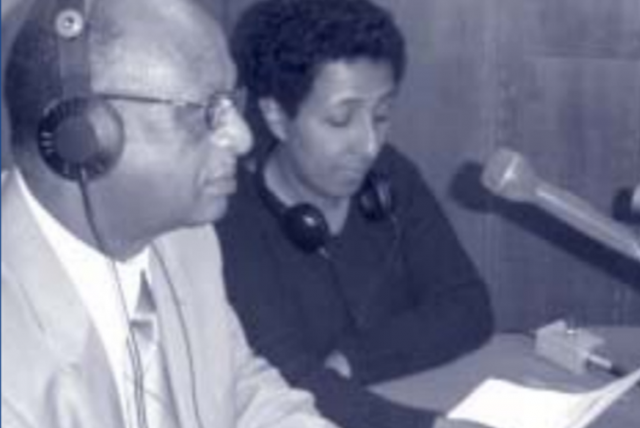
CIPE carries out more than 100 programs worldwide and many gain widespread attention. The CIPE-supported Addis Ababa Chamber of Commerce is named the “African Chamber of the Year” by the Broadcasting Network of Africa for its radio show on business issues.
- CIPE works with Iraq’s business community ahead of the country’s first free elections and helps launch an Afghanistan International Chamber of Commerce.
- Hungary, Poland, and the Czech Republic (sites of previous CIPE programs) are among the ten newest European Union members.
- The Coalition of Women’s Business Associations (CAFA) grows out of a model CIPE program in Romania and becomes an enduring example in the region of sustainable local ownership.
- CIPE joins the Institute for Solidarity in Asia to promote the Performance Governance System, a management tool eventually adopted by dozens of local governments in the Philippines. The Performance Governance System helps many of these governments generate revenue and reduce financial dependence on the central government.

- Ukraine partners engage 7000 representatives of the private sector and government in efforts to incorporate business priorities into political party platforms ahead of key elections. Partners also publish a “Message from the Business Community to the Government of Ukraine.”
- CIPE programs in Kenya and Nigeria build capacity of small enterprise associations and think tanks to monitor government processes, launch advocacy campaigns, and make policy recommendations.
- Pakistan allows the creation of women’s chambers of commerce for the first time in its history, as part of CIPE-led efforts around regulatory reform and revisions to the country’s Trade Organisations Ordinance that include new self-governance mechanisms.
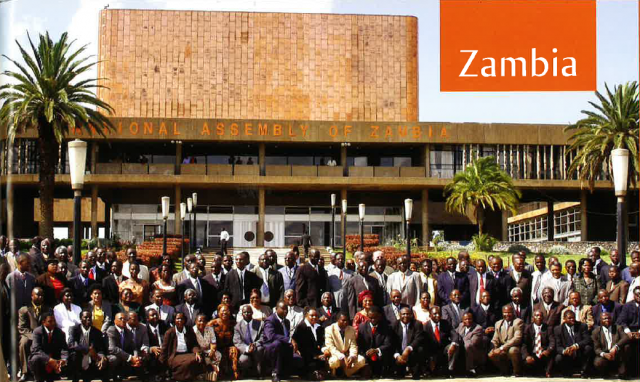
Pakistan registers its first two women’s chambers of commerce, in Northern and Southern Punjab. Moreover, CIPE and a local partner create the country’s first-ever corporate governance guide for family businesses. And the Lebanese Transparency Association publishes the country’s first-ever Code of Corporate Governance.
CIPE works with partner IEA Ghana to organize a series of debates and roundtables for presidential candidates and other elected officials. Similar activities follow in Colombia, Argentina, Paraguay, and Moldova, sparking a trend that continues today.
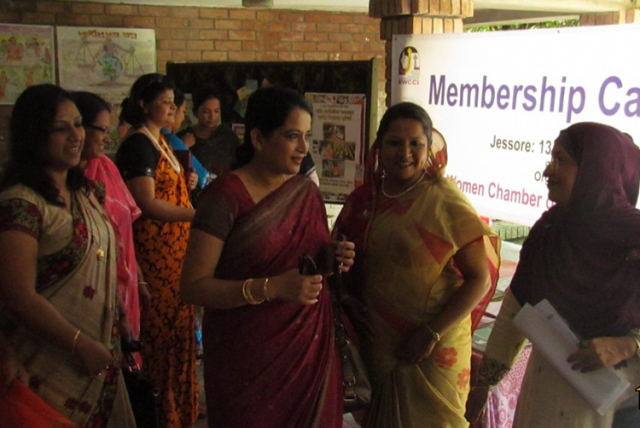
CIPE launches a Democracy That Delivers conference series to reinforce the concept and helps the Bangladesh Women’s Chamber of Commerce and Industry create the first known Women’s National Business Agenda. Among the results: more women receive commercial bank loans to start businesses and serve on the boards of state-run banks.
With technical assistance from CIPE, Thailand’s Collective Action Coalition Against Corruption is launched by the Institute of Directors. The coalition adopts a robust certification process and grows to include over 200 publicly listed companies, inspiring similar collective action across Southeast Asia, Africa, and Europe-Eurasia.

CIPE assists in the establishment of the All-Ukrainian Coalition of 22 business associations, which organizes a 12-day seminar series to address topics such as new legislation, budgeting, fiscal management, communications, and advocacy.
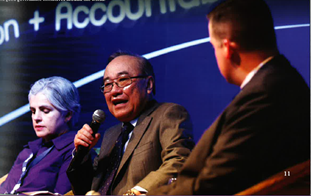
CIPE partners with the Thai Institute of Directors to develop an anti-corruption effort that focuses on the supply side of corruption. The coalition includes more than 400 local and multinational member companies representing nearly 20% of Thai gross domestic product.
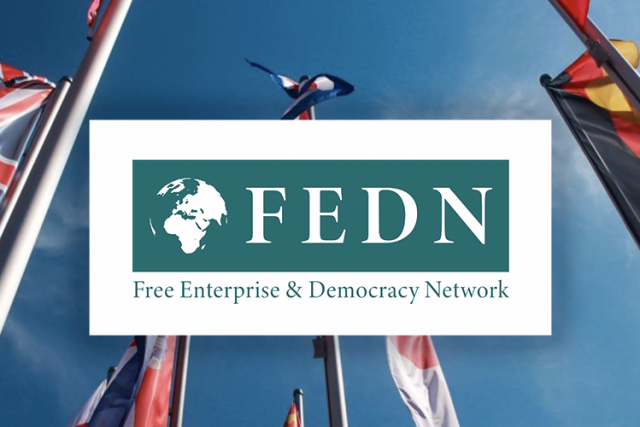
The Free Enterprise and Democracy Network (FEDN) is established by CIPE to provide a mechanism for private sector leaders and advocates of economic freedom to exchange ideas and support and make the case for democratic, prosperous societies.

Women’s regional business networks in Africa continue to grow with support from CIPE. Dr. Joyce Banda, the founder of the National Association for Business Women and a former CIPE partner, becomes Malawi’s first woman president and gains international attention.
CIPE and partners introduce a new methodology to map and evaluate institutional components of property markets, such as corresponding regulations, in order to identify opportunities for advocacy and reform. The tool is eventually utilized in dozens of countries and later cited in college urban planning classes.
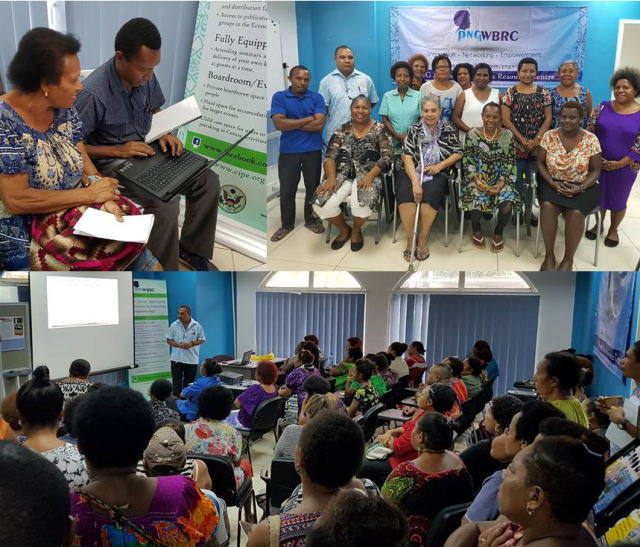
CIPE launches an initiative in the largest Pacific island country, Papua New Guinea, to help empower women economically and create a women’s chamber of commerce.
Future efforts will include business training programs with local universities and the opening of a Women’s Business Resource Center that serves thousands.
CIPE initiates “rapid response” programs to combat corruption in countries with quickly changing environments. This lays the foundation for future technical and financial assistance for anti-corruption work in The Gambia, Armenia, Sudan, Moldova, Malaysia, Ecuador, and others.

- CIPE joins the World Economic Forum and the International Chamber of Commerce in forming the Global Alliance for Trade Facilitation to help developing countries implement the World Trade Organization Trade Facilitation Agreement.
- CIPE debuts a new audio podcast, which focuses on timely topics and new programs. In the inaugural episode, Executive Director Andrew Wilson discusses CIPE’s mission and the role of business in democratic development.
- A Women’s Business Resource Center in Papua New Guinea supported by CIPE and the Australian government opens. It receives thousands of visitors and quickly becomes a hub of activity.

CIPE leads and participates in numerous events worldwide to share evidence-based approaches and tools to aid democratic and market-oriented reform. Among them: an International Property Markets Scorecard to gauge laws around property rights in emerging markets, including many African countries. The materials are utilized by numerous audiences, including university urban planning classes.

At the height of the global refugee crisis, CIPE and international partners start the Livelihoods Innovation through Food Entrepreneurship (LIFE) Project, which supports and encourages entrepreneurship, job creation, and cross-cultural engagement in the food sector in Turkey. With CIPE’s first-ever funding from the U.S. Department of State’s Bureau of Population, Refugees and Migration, the project established the first food business incubators in Turkey, where refugees and members of the host communities start and scale successful food businesses.

At a Capitol Hill event, experts introduce the concept of “corrosive capital,” foreign investment that exploits governance gaps in recipient countries and weakens democratic institutions. This coincides with the publication of case studies from dozens of countries and key recommendations. The corrosive capital term catches on and becomes widely used in many circles.
CIPE launches two Centers of Excellence to share decades of lessons learned and inform new thinking: The Anti-Corruption and Governance Center and the Center for Women’s Economic Empowerment.
CIPE, NED, and the U.S. Chamber of Commerce Africa Business Center launch a joint initiative with the Burkina Faso government to urge greater regional collaboration between government, business, and civil society. This results in the release of the “Ouagadougou Declaration” at a conference attended by the leaders of Mali, Ivory Coast, Ghana, and Niger. This inspires similar dialogues elsewhere, including high-level roundtables sponsored by the Kenya Private Sector Alliance, a CIPE partner.
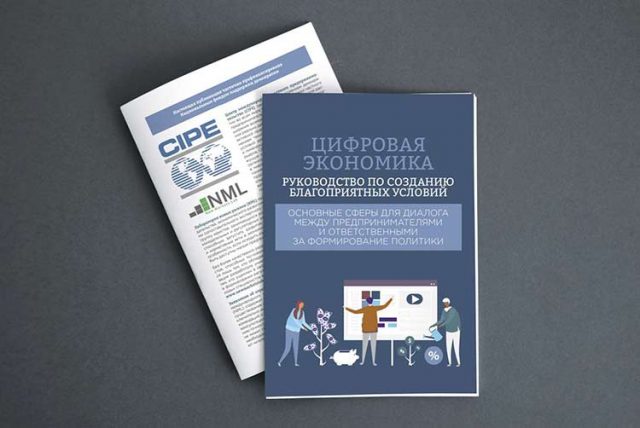
A free, interactive digital economy guidebook developed by CIPE and New Markets Lab is translated into numerous languages for use globally by small and medium size businesses. It includes easy to understand explanations around electronic transactions and cybersecurity issues. More online modules follow and some are adopted by governments to boost economies.
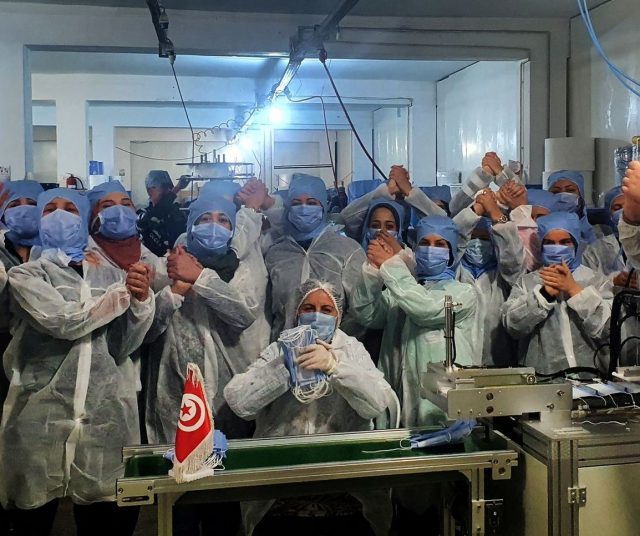
CIPE and partners worldwide help communities solve new social and economic problems amid the COVID-19 pandemic. Organizations lend expertise and resources to address everything from medical supply chain issues to street sweeping and proposed economic plans. CIPE publishes a COVID recovery roadmap e-book with the Diplomatic Courier.

The Ethics 1st program launches in Africa, a robust initiative to inform companies on universal business standards and pathways to demonstrate compliance to potential investors. Initial efforts focus on Kenya and Nigeria.
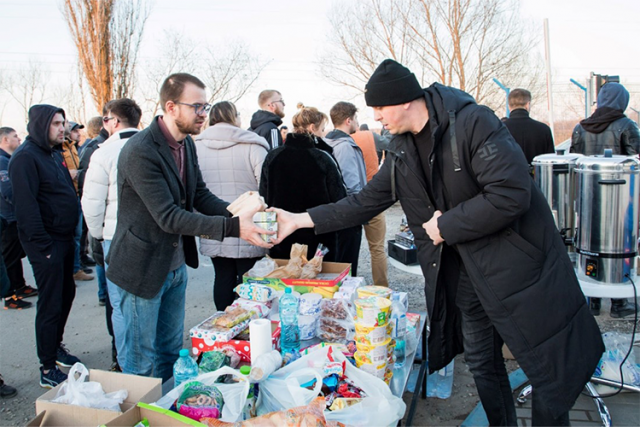
- CIPE staff in Ukraine and a vast network of business organizations mobilize to address the country’s mounting humanitarian crisis and inform international audiences following an attack by Russia.
- Launch of CIPE’s Center for Accountable Investment (CAI), which focuses on helping countries identify corrosive capital from foreign sources and create environments that attract constructive capital investments.
- Debut of Corruption Risk Forecast website and free tool developed by CIPE experts and Berlin’s Hertie School helps investors and researchers predict trends in more than 100 countries.
- CIPE holds a highly-attended virtual Youth Leadership Conference and networking event featuring projects by young leaders from around the world.
- The WE-Champs program implemented by CIPE and partners in 18 European countries is cited at a U.S. State Department event.
- CIPE prepares to launch updates to its popular Corruption Risk Forecast web tool and release new reports on corrosive capital case studies from Europe and the Middle East, as well as events in Latin America and elsewhere on constructive capital concepts.
Published Date: February 05, 2024
